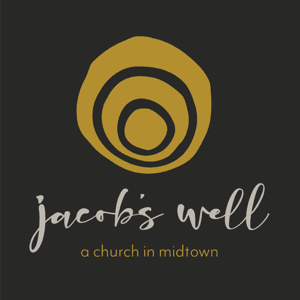1. Tim started his sermon talking about Edwin Friedman & family systems theory, and the ways in which the systems and environments in which we are steeped seem “normal” to us, because we’re deep inside of them. Outsiders, on the other hand, can come in and easily see things that we have never noticed.
In some instances, these outsiders can act as what Friedeman referred to as a “non-anxious presence.“ That is someone who is relationally connected to the system or environment, but is not emotionally entangled with it.
Whether the system in question is your family, a workplace, a church, a neighborhood, or any other environment, what experiences do you have being someone who is a part of a system that seems “normal” to you until an outside voice starts pointing out its idiosyncrasies? Share about the context, the nature of the outside voice, and how that voice was responded to both by you and by others in the system. Was there a long-term impact on the system that resulted from the introduction of those outside perspectives?
Do you have any experiences being one of those outside voices? Share about the context of any of those experiences you may have. How did it feel to be the person raising your voice? How were you responded to? What did you make of that situation? What happened long-term?
2. Tim went on to draw a parallel between the Old Testament prophets and Friedeman’s concept of a non-anxious presence.
Take a moment to Think about the emotional and relational experiences of both the people in the system and the outside voice in some of the situations described in the first question. Whether you’ve had that experience or not, take a moment to imagine what it would be like to act as that non-anxious presence as a prophet in Ancient Israel. Take a moment to imagine what it might have been like to be a part of the ancient Israelite communities on which the prophets commented.
How does considering the prophets through this lens impact your understanding of who the prophets were, how they affected the systems they were connected to, and how their words were received by Israel & the subsequent generations of readers who’ve revered their words? How does it impact their words as you know or understand them today?
What do you make of the fact that so many important writings in the Christian tradition come from these Old Testament prophets , especially during Advent? What connections do you see between the role of the prophets as “non anxious presences” and the role Jesus played in his own time and place on earth? What about the role of Jesus today in modern Christianity and in the world at large?
3. In what ways do you see yourself, as a part of the church, and/or the church as a whole acting as that non-anxious presence, reflecting the realities of systems back to themselves?
Where do you see parallels in which you feel like this is happening? Where do you see parallels in which you feel like it could be happening or should be happening more?
How do you feel when you consider the possibilities of stepping more into that space personally? What comes to mind?
What surfaces for you when you consider the moment in which today’s church finds itself and the possibility of stepping more into the role of a non-anxious presence, reflecting the systems back to themselves - and living with the reactions and resistance? What would it look like for you to step more into that space?



















